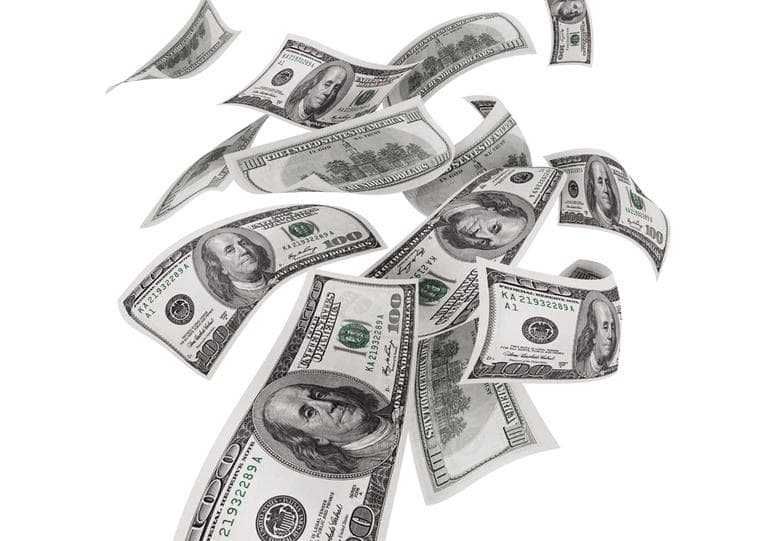Advertisement
Is It Time For A Wealth Tax?
ResumeMitt Romney says he pays a tax rate near 15 percent. Nice, if you can get it. We’ll look at a controversial proposal to tax the super rich on their income and their wealth.

So, Mitt Romney is worth maybe a quarter billion dollars, considers $375,000 in speaking fees a pittance, parks millions in the Cayman Islands, and pays fifteen percent, maybe, on his income – while the average American living much lower on the totem pole pays 25 to 35 percent. Wow.
Not a pretty picture. And then, his plans for the country would further cut taxes for million-plus earners, we’re told, and balloon the national deficit. My guest today says this isn’t working. We need a new way.
This hour, On Point: one conservative’s plan to tax the rich directly on their wealth.
-Tom Ashbrook
Guests
Ronald McKinnon, professor of International Economics, Stanford University. His recent op-ed in the Wall Street Journal January is “The Conservative Case for a Wealth Tax.”
Douglas Holtz-Eakin, president of the American Action Forum, a conservative economic policy think tank. Commissioner on the Congressionally-chartered Financial Crisis Inquiry Commission. From 2001 to 2002 he was chief economist of the President’s Council of Economic Advisers under George W. Bush.
Donald Marron, director, Tax Policy Center, which is a branch of the Urban Institute and the Brookings Institute. Former member of the Council of Economic Advisers under President George W. Bush and a former acting director of the Congressional Budget Office.
Highlights
Presidential candidate Mitt Romney says that his own tax rate is around 15 percent, even though his total worth is estimated at around $250 million. A new tax proposal would lower the nation’s marginal tax rate, while applying an addition tax on so-called “accumulated wealth.”
While income is hard to measure and tax, “you can define wealth quite easily,” said Ronald McKinnon, a professor of International Economics, Stanford University and self-described conservative.
“Republicans all say that they want a flat income tax but have forgotten that you need to raise revenue,’ McKinnon said. His proposed wealth tax – on the top 5 percent of the country’s most-wealthy — would achieve the goal of flattening the marginal income tax rate, while the wealth tax would be seen by the public as fairer than other options.
The wealth tax hasn’t gained much traction – in fact, a McKinnon op-ed in the Wall Street Journal stirred up a hornet’s nest of ire from conservatives. “We’ve had some experience with wealth taxes in the United States – we’ve had an estate tax for many years,” said Douglas Holtz-Eakin, president of the American Action Forum, a conservative economic policy think tank. “There’s a growing body of literature that shows that it is far from a benign instrument of social justice…it inhibits overall wealth creation.”
All the remaining Republican presidential candidates have proposed both cutting and flattening taxes. But those changes would have an immediate and negative impact on the nation’s budget deficit, said Donald Marron, director, Tax Policy Center, which is a branch of the Urban Institute and the Brookings Institute.
Those cuts would have an immediate impact on the nation’s budget deficit, said Marron. Romney’s plan would increase the deficit by between $200 billion and $600 billion in a single year, Marron said. .Tax plans by Gingrich and Santorum would increase the deficit by between $900 billion and $1.3 trillion, depending on how those impacts are calculated, he said.
From Tom's Reading List
The New York Times "Under growing pressure from rival Republicans to release his tax returns, Mitt Romney said on Tuesday that he paid a tax rate approaching 15 percent on his millions of dollars in annual income but said he would not make public his full return until April."
Wall Street Journal "Prof. Ronald McKinnon's suggestion ("The Conservative Case for a Wealth Tax," op-ed, Jan. 9) that a modest wealth tax can be a conservative policy tool is mistaken. Governments use new tools of taxation to grow spending, the reason conservatives oppose a value-added tax.
Los Angeles Times "President Obama is right to insist on the "Buffett rule": Millionaires should not be paying income tax at a rate lower than their secretaries'. But correcting this inequity is only a small step toward fairness."
This program aired on January 19, 2012.